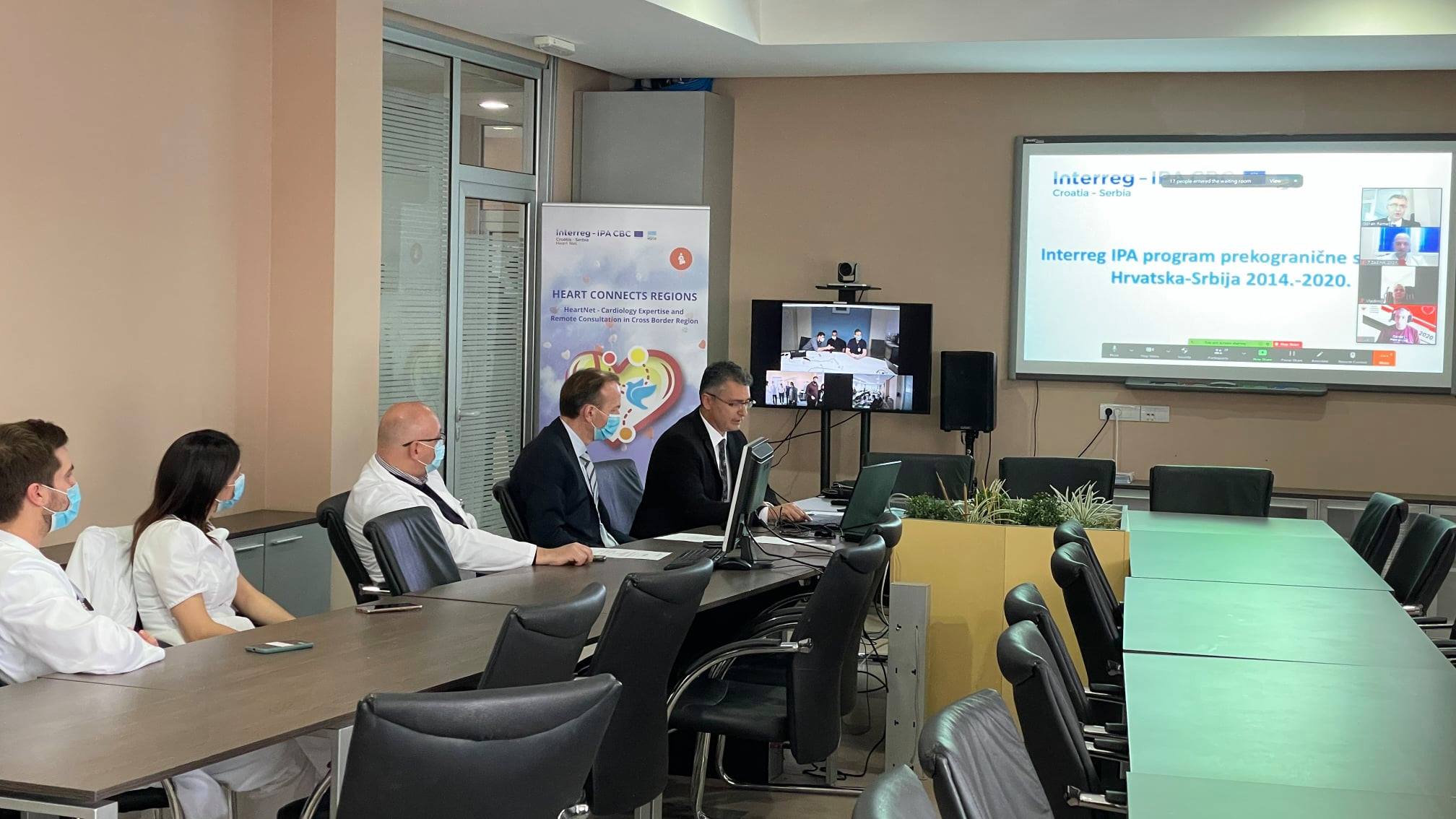The ERDF and IPA-funded Heart Net project established a telemedicine network of doctors and patients in the Serbia-Croatia cross-border area. This was in response to the high incidence of cardiovascular disease in the region, a problem compounded by a shortage of healthcare infrastructure and qualified staff. The benefit has been an improved quality of life for patients.
- 26 January 2022
“Heart Net will never stop. After completion of the project, we hope that with new projects or activities we will increase the number of users, increase its role in the diagnosis process, and stimulate its use for educational purposes.”
The network has improved access to healthcare for about 10 000 patients in the region, as it allows for remote examination and diagnosis, and faster response in case of emergencies. The project connects 30 medical staff in five hospitals in the regional centres of Vukovar, Croatia, and Subotica, Novi Sad, Sombor and Sremska Mitrovica in Serbia.
The project partners improved communication channels, enabling the transfer of knowledge and medical expertise among the hospitals. Joint specialised trainings and medical protocols were developed to ensure a rapid and professional response.
A bridge of friendship
The Institute of Cardiovascular Diseases in Vojvodina, Serbia, and County General Hospital, Vukovar and Hospital of Croatian Veterans are the project partners. Cardiologist Ilija Srdanović described the project as a ‘bridge of friendship’ between the two countries.
According to the partners, the cross-border area has the highest incidence of cardiovascular disease in Europe, due in part to poor eating and lifestyle habits. A lack of investment in healthcare has resulted in a growing number of qualified staff emigrating.
Remote medicine
To overcome these difficulties, telecardiology was chosen as the preferred solution, as it allows for provision of healthcare to patients without them having to be physically present with a cardiologist. It enables regular examinations of chronic patients, and increases the productivity of doctors due to the time saved on travelling.
The telemedicine access centres at the five hospitals allow for specialised healthcare to be brought to areas that need it. They reduce migration of patients to areas where they think better quality services are available and prevent unnecessary transfers to other institutions.
The network allows for secure storage and exchange of medical data and enables monitoring of patients’ vital functions.
In one case, the life of a 24-year-old man was saved when, during an examination by a doctor, he had a cardiac arrest. After a remote diagnosis was performed, the man was sent for surgery to have a cardiac defibrillator implanted.
Thanks to the project, the National Memorial Hospital in Vukovar has received state-of-the-art equipment, including a new defibrillator and resuscitation cart.
Total investment and EU funding
Total investment for the project “HEART NET” is EUR 1 195 481, with the EU’s European Regional Development Fund and Instrument for Pre-Accession Assistance II contributing EUR 1 016 159 through the “Interreg IPA CBC Programme Croatia-Serbia” Programme for the 2014-2020 programming period. The investment falls under the priority “employment, labour mobility, social inclusion, health and social care”.

